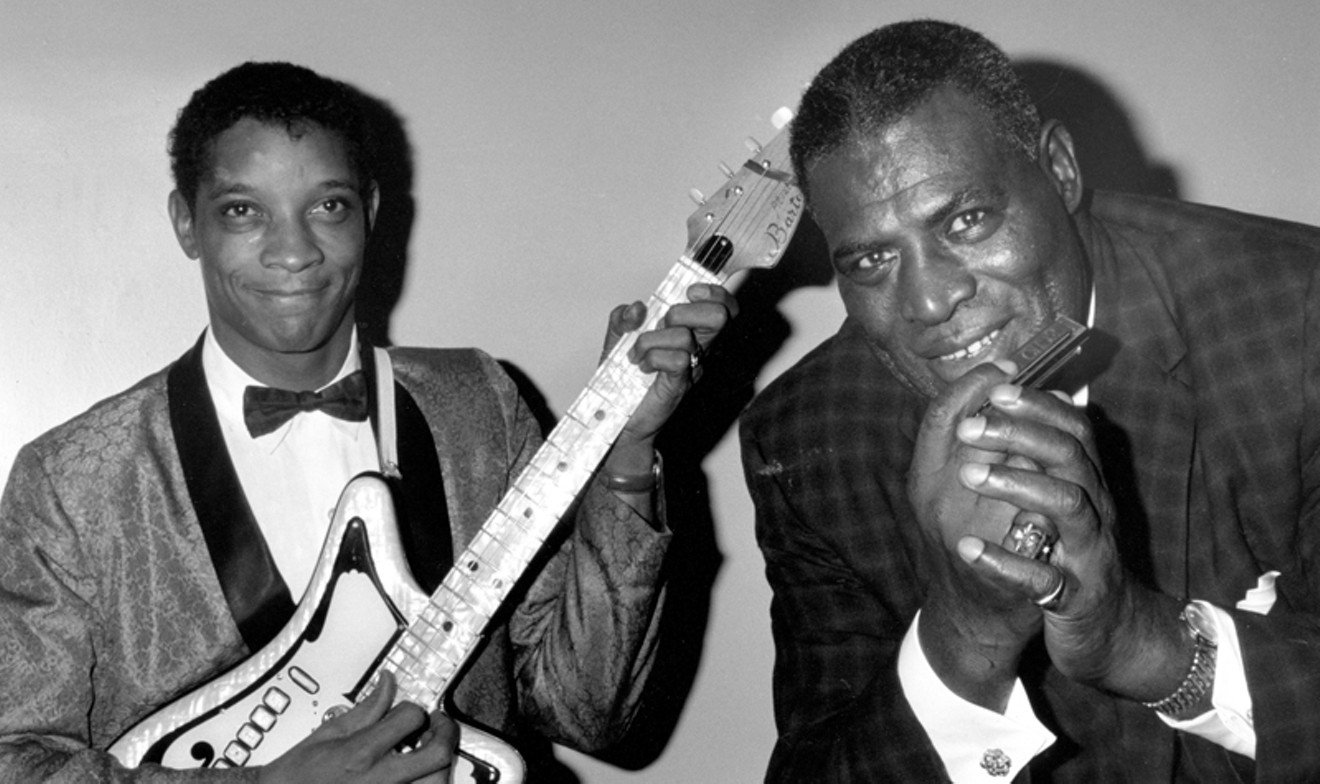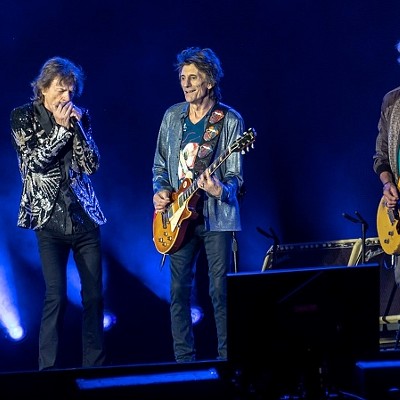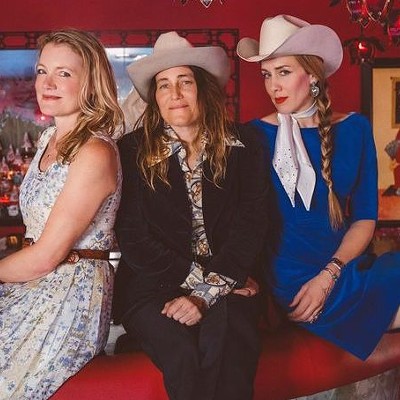While the respective champions of New Orleans and the Mississippi Delta can (and will) continue to tussle over a claim to the “birthplace” of the blues, there’s only one Kind of Town that can lay a fairly unchallenged status as the epicenter of the music once it went electric: Chicago.
In the 1940s and ‘50s, Black migrants blew into the Windy City by the thousands, taking the Illinois Central Railroad train up to Union Station for a place that promised jobs, more money and better opportunities than their Southern hometowns.
With that wave came a need for entertainment and musicians of various stripes and skill levels also poured into the city. They’d often play for change from passersby at the open-air Maxwell Street Market before heading indoors to the city’s thriving nightclub life.
“I had no idea the train thing was such a big part of it. It turns out that pretty much sooner or later every train in the country goes to Chicago. But in particular, they ran up from the South easily and cheaply,” says Joel Selvin.
The longtime and esteemed music journalist is Co-Producer and Writer of the new documentary on the history, impact, and legacy of blues in the city, Born in Chicago (Shout! Studios). It will be available on most streaming and VOD services beginning August 1.
“Chicago became this place you could escape the agrarian nature of the South, live in a big city, and find factory work,” he adds. “There were whole neighborhoods of Southern transplants. And they brought the music with them.”
Selvin points out that folklorist Alan Lomax first recorded sharecropper Muddy Waters (born McKinley Morganfield) at Stovall Plantation in Mississippi in 1941 and 1942. By the next year, the singer/guitarist had moved to Chicago and was quickly playing house parties.
Born in Chicago is directed by Bob Sarles and John Anderson and narrated by a real “blues brother”—Dan Aykroyd, who also serves as an Executive Producer. The first part tells the tale of the OG Chicago bluesmen. Figurative (and sometimes, literal) giants whose bands galvanized south side clubs like Pepper’s, Theresa’s Lounge and the 708 Club.
Many of them would go on to find eventual fame and fortune as members of the Chess Records stable. There is archival interview and/or performance footage from the marquee names including Muddy Waters, Howlin’ Wolf, Little Walter, Otis Spann, Hubert Sumlin, Jimmy Rogers, Otis Rush, Junior Wells, Willie Dixon, B.B. King, Magic Sam, and Buddy Guy. Guy—the last surviving member of The Chess Club—is also featured with more contemporary comments.
“Early on, Muddy and the Wolf were largely relegated to local audiences in Chicago, and then mostly the West and South side,” Selvin continues. “All this was preserving the culture but had clearly been transformed by the urban environment. It’s an amazing group of people.”
One of the more interesting aspects of Born in Chicago is that it gives nearly equal screen time to the journey of discovery and woodshedding of the white teenagers and young adults who were gripped by the music. Selvin says that was part of the plan from the start.
“The movie was always about the passing of the torch. Of how these young white musicians rescued this dying African-American art form. And in this day and age, it’s a really important story to tell. It’s the opposite of cultural appropriation,” Selvin offers.
Rather than just listen to records and practice instruments in their bedrooms, budding bluesmen like Michael Bloomfield, Paul Butterfield, Charlie Musselwhite and Elvin Bishop would journey via borrowed car of public transportation to the “dangerous” South Side of Chicago to hear the music in person.
Eventually, many of these white youngsters would not only befriend the elder bluesmen, but be welcome guests both on their stages and in their homes.
“For young Blacks growing in the ‘60s, the [blues] music of the Southern agrarian life was not relevant to their experiences,” Selvin says, noting they were instead following and buying records by artists like James Brown, Sam Cooke, Jackie Wilson and burgeoning new stars of R&B/soul music.
Years later, their more rocked-up take on the blues would find those White acolytes playing stages on the city’s North Side and as far away as San Francisco’s Fillmore, where they would encourage promoters like Chet Helms and Bill Graham to book the genuine articles back in Chicago to play for audiences of college students and hippies.
The most diehard proselytizer Selvin says, was Bloomfield, also someone with a lot more interests outside of music.
“Michael was a force of nature. Just one of these people with an extra helping of personality and character. And he was always turned on and engaged in some kind of intellectual curiosity from the history of American comedy to the letters of Evelyn Waugh. He was an intrepid explorer of life,” Selvin remembers.
In his later years, Bloomfield ended up making soundtracks to porno movies though Selvin—who knew him personally—takes issue with the common biographical note that he’d been “reduced to” creating music for skin flicks.
“I was around when he was doing work for [adult film producers/directors] the Mitchell Brothers. And he was fully enthusiastic about that work. Absolutely,” Selvin laughs. “He’d go ‘Joel! The c—— are six feet wide!’”
And then there’s Bob Dylan, who enthuses about playing and recording with Bloomfield. Most memorably on the “Like a Rolling Stone” single and the 1965 Newport Folk Festival. That’s where and a chunk of Butterfield’s group, already playing the gig, backed Dylan for the controversial three-song set when he “went electric.”
Prominently featured in Born in Chicago are contemporary interviews with several of those white players known mostly to liner note readers like Nick Gravenites, Barry Goldberg, Harvey Mandel and Corky Siegel. The quartet would more recently play together in the band Chicago Blues Reunion.
It also briefly mentions the usually British bands like the Yardbirds, Animals, and Cream made of up blues-obsessed youth who then “recycled” the music back to America’s own young.
Foremost among this batch were the Rolling Stones. The band wore their influences not just on their sleeve, but entire jacket. They took their name from a Muddy Waters song. And an early single was “Little Red Rooster,” a Willie Dixon-penned tune most associated with Howlin’ Wolf.
When the Stones were asked to play the Shindig television music show, they had one requirement: That the producers book Howlin’ Wolf as well. It would be the man born Chester Burnett’s only major American TV appearance. The Animals’ Eric Burdon and Stones’ Keith Richards have their say here, along with Steve Miller whose foundation is in the genre but went on to become one of the ‘70s biggest rock stars.
In the end, Selvin says that he hopes Born in Chicago can appeal to both the Blues Scholar and Blues Neophyte, each taking away different things. But he’s clear in his own mind what the documentary is really about.
“I want them all to understand that—as Elvin Bishop says—when Blacks and whites work together, they can do amazing things,” Selvin sums up.
“I’m really big on this, Bob. I think this story is one of the most important [generational] transitions in all of American music. It transformed American music. It was an act of cultural heroism! And an important piece of making America whole. And in harmony with all of our cultural heritage. It’s all super-important shit!”
Support Us
Houston's independent source of
local news and culture
account
- Welcome,
Insider - Login
- My Account
- My Newsletters
- Contribute
- Contact Us
- Sign out

Hubert Sumlin and Howlin' Wolf
Screen shot
[
{
"name": "Related Stories / Support Us Combo",
"component": "11591218",
"insertPoint": "4",
"requiredCountToDisplay": "4"
},{
"name": "Air - Billboard - Inline Content",
"component": "11591214",
"insertPoint": "2/3",
"requiredCountToDisplay": "7"
},{
"name": "R1 - Beta - Mobile Only",
"component": "12287027",
"insertPoint": "8",
"requiredCountToDisplay": "8"
},{
"name": "Air - MediumRectangle - Inline Content - Mobile Display Size 2",
"component": "11591215",
"insertPoint": "12",
"requiredCountToDisplay": "12"
},{
"name": "Air - MediumRectangle - Inline Content - Mobile Display Size 2",
"component": "11591215",
"insertPoint": "4th",
"startingPoint": "16",
"requiredCountToDisplay": "12"
}
]
KEEP THE HOUSTON PRESS FREE...
Since we started the Houston Press, it has been defined as the free, independent voice of Houston, and we'd like to keep it that way. With local media under siege, it's more important than ever for us to rally support behind funding our local journalism. You can help by participating in our "I Support" program, allowing us to keep offering readers access to our incisive coverage of local news, food and culture with no paywalls.
Bob Ruggiero has been writing about music, books, visual arts and entertainment for the Houston Press since 1997, with an emphasis on classic rock. He used to have an incredible and luxurious mullet in college as well. He is the author of the band biography Slippin’ Out of Darkness: The Story of WAR.
Contact:
Bob Ruggiero
Trending Music
- How Much Longer Can Classic Rock Rule the Roost?
- Legendary Bluesman Goes Rogue on New Album
- Top 10 Butt-Rock Bands of All Time
-
Sponsored Content From: [%sponsoredBy%]
[%title%]

Don't Miss Out
SIGN UP for the latest
Music
news, free stuff and more!
Become a member to support the independent voice of Houston
and help keep the future of the Houston Press FREE
Use of this website constitutes acceptance of our
terms of use,
our cookies policy, and our
privacy policy
The Houston Press may earn a portion of sales from products & services purchased through links on our site from our
affiliate partners.
©2024
Houston Press, LP. All rights reserved.








